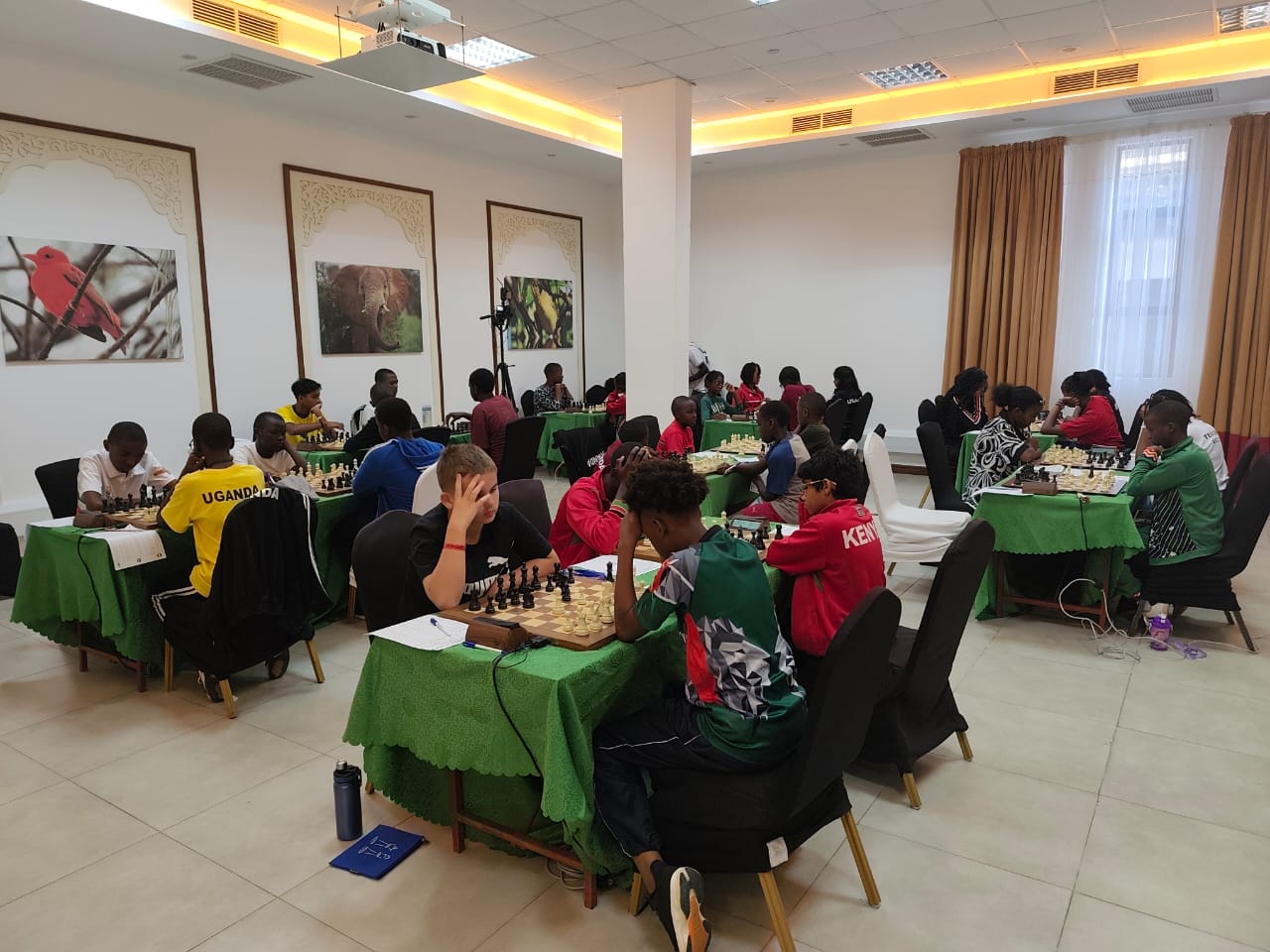 Chess players at the ASICC in Mombasa on Sunday / BRIAN OTIENO
Chess players at the ASICC in Mombasa on Sunday / BRIAN OTIENO
More than 1,100 Under-17 players from 12 countries are expected to grace the 2025 African Schools Individual Chess Championships (ASICC) in Mombasa.
Kenya have the biggest representation with about 800, while the others are drawn from South Africa, Botswana, Zambia, Angola, Tanzania and Uganda.
Chess Kenya Federation secretary general John Mukabi said the huge entries, especially by Kenyans, show the myth about chess being an elite sport is being done with.
“About 10 years ago, we used to have the finals of the schools concentrated only in Nairobi, and we used to attract a maximum of 200, 250 players,” Mukabi
told the Star. “Today, our national finals attract 7,000 plus.”
“There is a girl from Uganda who was highlighted in the movie ‘Queen of Katwe’. She grew up in the slums of Katwe in Uganda, and she has bought a house for her mother through chess. She is now doing very well in the US, where she went to university,” Mukabi said.
A chess tournament must have at least three federations for it to be considered a regional, continental or world event.
“This one has all the 12 categories with 11 federations represented, which is unprecedented,” Mukabi said.
Rose Chemiat, a chess enthusiast and coach, said the game needs patience and helps in the development of the brain.
“It also helps the players develop problem-solving attributes,” she said.
Chemiat expects to see more female players join.
Mukabi said they have witnessed gradual growth after a campaign to demystify the game involving public schools.
About 600 schools, public and private primary and secondary, participated in last year’s national championships.
About 35 counties are active and are now creating structures, branches that are subscribing to the parent federation.
Additionally, it has been drafted into the Competency-Based Curriculum for Grade 9. The move, Mukabi said, means a demand for coaches.
“I am not sure whether they will be able to meet the demand, which means we need to train more coaches and trainers,” Mukabi said.
This has another drawback.
“Our biggest challenge is equipment, which is a good problem to have. It shows you how chess has grown in the counties,” he said.
Mukabi revealed Kenya has about 1,000 coaches, World Chess Federation (FIDE) certified coaches and about 200 students who have scholarships abroad in the last five years.
Team Kenya lead coach Tom Amwai has backed his charges to excel at the Mombasa tourney.
“We have brilliant chess players in all categories and we believe we will win lots of gold (medals),” he said.










![[PHOTOS] Elgeyo Marakwet landslide victims arrive in Eldoret for care](/_next/image?url=https%3A%2F%2Fcdn.radioafrica.digital%2Fimage%2F2025%2F11%2F425460d9-7ff1-4975-8a1f-cd0aaefb7812.jpg&w=3840&q=100)

